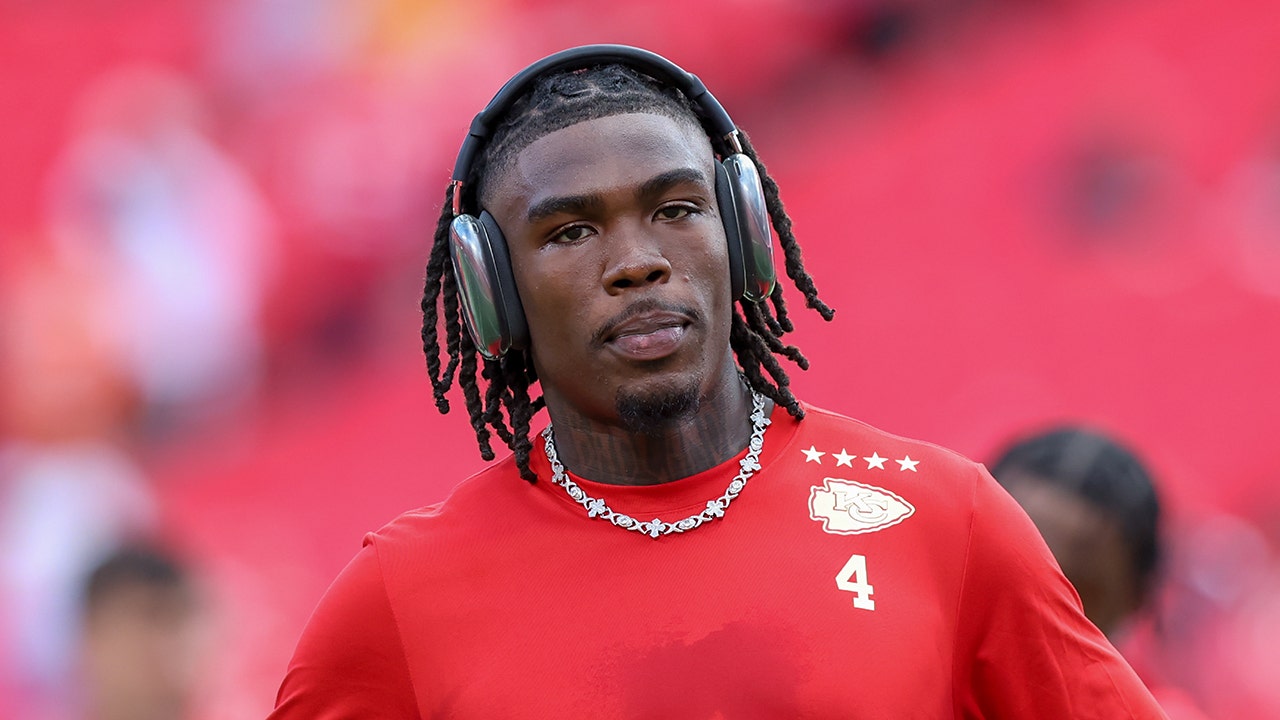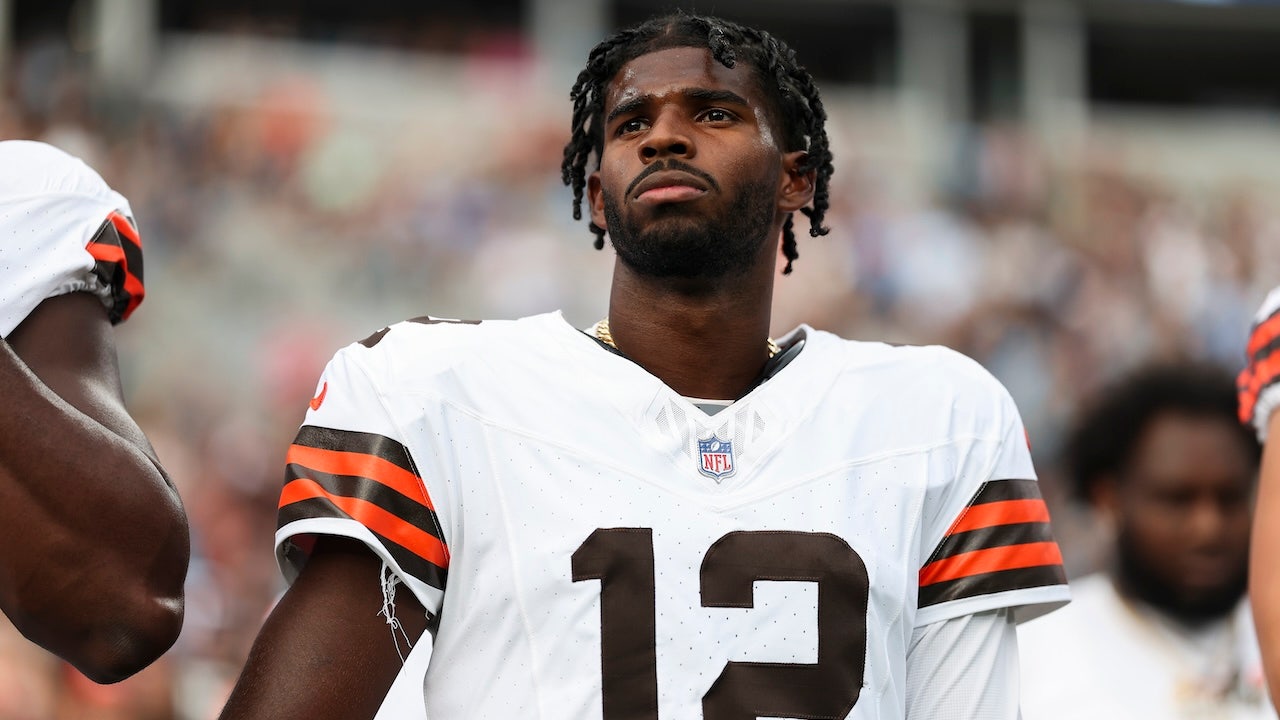What is revolting? Trump Troop deployments may be the explanation

[ad_1]
At the center of the legal battle raging over President Trump’s domestic war is one word: rebellion.
To justify sending a security guard to Los Angeles and other cities over the cries of local leaders, the Trump administration used to give the president the power to strengthen the military to revolt, or the threat of one.
But the principle does not define the word it turns on. That’s where Bryan A. Garner comes in.
For decades, Garner has defined words that make law. He edited the Legal Reference Book, the black law dictionary, the American dictionary of American courts as black robes, rosewood gallos and the brass scale of justice.
Garner’s magnus dictionary, as important to lawyers as gray’s anatomy is to doctors.
Now, the dark meaning of rebellion is at the center of two pending decisions in cases from Portland, Ore.
That the dictionary could influence the case in court all goes in part to Garner’s seminal book on textuality, a legal doctrine that is consistent with the law that explains the interpretation of p. His author was Antonin Scalaia, Hlatule late Justice A hard read torture of a strong Constitution made way for the recent changes of the recent Court in abortion, voting and gun laws.
On a recent day of the week, the leading legal lexicon of the country was pregnant with some 4,500 dictionaries filling his Dallas home, updating the entry of the adjective “counting” before the 13th edition of the 13th.
But, despite his best efforts not to focus on the stakes of his career, the noun “rebellion” is never far from his mind.
Federal authorities remain under surveillance at immigration and detention facilities in Portland, Ore., which has been the site of protests against the Trump Administration.
(Sean Bascom / Anadolu Via Getty Images)
“One of the first cases that appeared in my book sent a man to his capital punishment,” he explained of the former dictionary. “They hid from me, the boy was killed. I was very disturbed by that at first.”
He handled his grief by doubling down on his hardships. In its first hundred years, Black’s law dictionary was revised and updated six times. From 1999 to 2024, Garner produced six new programs.
“I work on it almost every day,” she said.
Most mornings, rising before dawn, preparing behind the desk in one of the libraries of one of the three at home at about 4 in the morning to start explaining.
That quickness didn’t prevent a psychological battle for his work in the past months, as judges across the country read conflicting definitions of “insurrection.”
The Department of Justice and the Attorneys General of California, Oregon and Illinois also oversee the Word.
In making their case, almost all of them have invoked the definition of Black – one Garner has written himself for the past 30 years. He started editing the 124-year-old etherethere book in 1995.
“The word ‘rebellion’ has made its basic objectives unclear since I took office,” he said.
“Oh! So somehow I added, ‘Often violently,'” he cheered.
This change comes from the first meaning of the definition: 1. Open, organized, and armed resistance to the established government or ruler; ESP., an organized attempt to change the government or leader of a country, Usu. with violence.
States have issued a statement saying that defamation won’t apply to scaled-down Waymos in Los Angeles or naked bikes in Portland.
The Trump administration, meanwhile, has relied on cows two and three to say the opposite.
The California Department of Justice wrote in its amicus brief to the Supreme Court in the Illinois Case of Illinois that state authorities are against any form of authority or custom, “including disobedience” to a legal order or subpoena. ”
“But it’s not true to think that you thought Congress intended to override that broad definition,” State said.

Secretary of Defense Pete Hegseth walks ONSTAGE to deliver remarks as part of the Marine Corps’ 250th Anniversary Celebration at Camp Pendlenton on Oct. Oct. 18.
(Oliver Prontras/AFP via Getty Images)
While the statistics and organizations of the war of rebellion make it different, the debate over definitions is nothing new, experts say.
The use of legal dictionaries to solve judicial problems has come a long way in recent years, with the stakes rising in style and the growing mentality in some parts of society that they are just making up the law as they go.
In 2018, the Supreme Court used dictionary definitions in part of its opinions, surprisingly from previous years, according to Mark A. Lemley, a professor at Stanford Law School.
Splitting hairs over what constitutes rebellion is the new measure of humanity, he said. “This is an unfortunate consequence of the Supreme Court’s recognition of dictionaries.”
“Reducing what the system says to one definition (of many issues) cannot give you a useful answer,” he said. “What it gives you is a way to manipulate meaning to achieve the desired effect.”
Garner has publicly acknowledged the limitations of his career. Ultimately, it is up to judges to decide cases based on precedents, evidence, and relevant law. Dictionaries are advingct.
Still, he and other pastors see the opportunity to find dictionaries as an important correction of past translations.
“Words are law,” Garner said.

Law enforcement officers watch from the ledge of the limrication and customs enforcement center as a protester stands outside the burning sero area on Oct. 21 in Portland, Ore.
(Jenny Kane/Associated Press)
The judges said that dictionaries are “not the reproductive power of lexicographs,” he argued, but simply provide a proper failure in the text enacted by Congress.
Some call the dictionary a fig leaf so that the over-trantive of jurists focus on studying the law to suit the political agenda.
“Judges don’t want to take the responsibility of saying ‘Yes, there is a rebellion’ or ‘No, there isn’t,'” said Eric J. Segall, a professor at Georgia State University College of Law. “No, it’s not.”
Although he accepted the dark meaning of rebellion, Segall rejected the idea that it could constitute a conspiracy: “That’s not how our legal system works,” he said.
The biggest challenge in military cases, legal scholars agree, is that they are turning to a vague, century-old text that lacks proper law to help explain it.
Unlike the previous presidents, who praised the act of renewal to fight violent problems, an invisible clause of the US code against the dictators of the country in America.
Before Trump sent troops to LA in June, the law had been used only once in its 103-year history.
With little interpretation to oppose it, the Ministry of Justice has received its reading of the novel statement to confirm the use of armed forces to support immigration detentions and put down demonstrations.
Administration lawyers say the President’s decision to send troops to Los Angeles, Portland and Chicago is “wrong” with CORTS, and that the troops can remain in the Federal service in practice, no matter how circumstances change.

Border Patrol Agent Greg Bovino walks with Federal Agents at the Edward R. Roybal Federal Building in Los Angeles on Aug. 14.
(Carlin Stiehl/Los Angeles Times)
Judges have rejected them so far. But they are separated from the problems of obtaining public efforts to interfere with the enforcement of authrotions leaving Trump “failing to make the general forces to make laws” and if sporadic violence becomes protests it adds to the rebellion.
As of this week, the scattered courts remain divided on the evidence.
On Oct3 23, Oregon demanded that the Department of Justice reduce the number of state security personnel that it meant to be deployed in Portland to respond to the protests to the actual size – a mistake the Department called “unintentional error.”
The increased number was mentioned repeatedly in oral arguments before the 9th Circuit and above in the district court’s decision — an order the court renewed Tuesday while reviewing.
The 7th round marked the same lie, leading to that opportunity to block the delivery of Chicago.
“The [U.S. District] The court found that all federal government declarations from those who would serve personally are unreliable to the extent that they are “documented by independent, objective evidence,” the panel wrote in its Oct. 11 decision.
A pending high court decision in that case could define Trump’s ability to send troops into every community — and possibly across the country.
For Garner, that decision means more work.
In addition to his dictionaries, he is also the author of many other works, including a Memoir on his friendship with Scalaia. In his spare time, he travels around the world teaching legal writing.
The editor attributes his brilliant results to strict discipline. As an undergrad at the University of Texas, he swore off weekly unghorns games and killed his beloved Dallas Cowboys to focus on writing, a practice he has maintained with Calvinist devotion ever since.
“I’ve never seen a game in the last 46 years,” said the lexicographer, although he made exceptions for the second halves of the Super Bowl and the national basketball game.
As for the political ball of “sedition,” wait to see how the Illinois Guard Case plays out.
“I’m going to be paying close attention to what the Supreme Court says,” Garner said. “If it writes anything about the meaning of the word rebellion, that would well affect the next edition of the black legal dictionary.”




